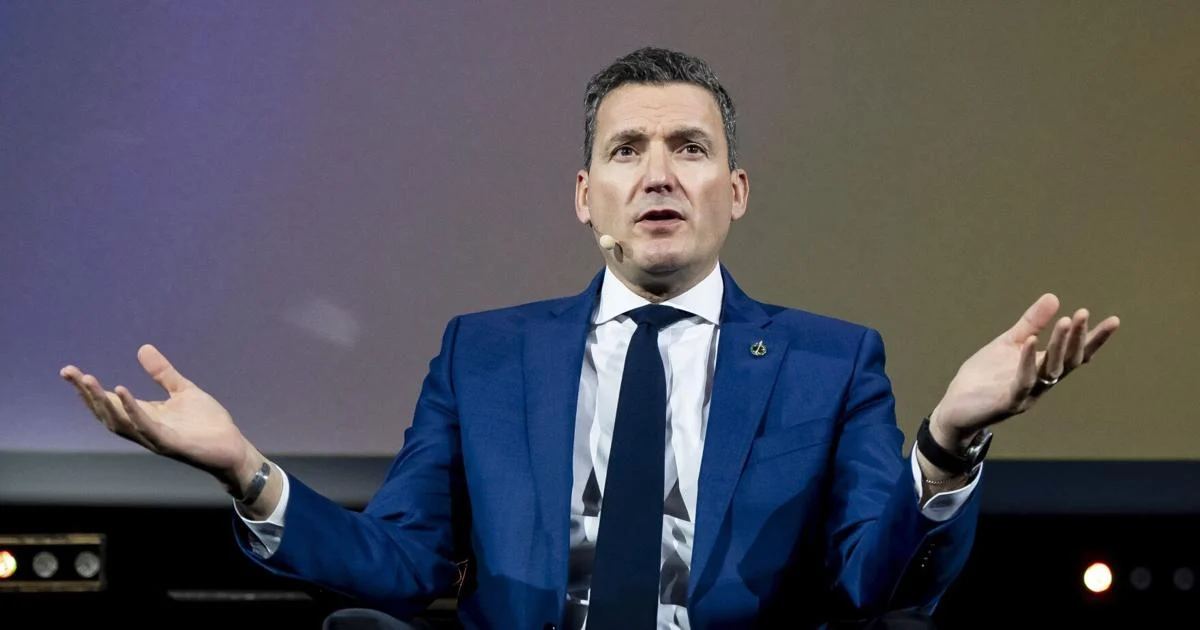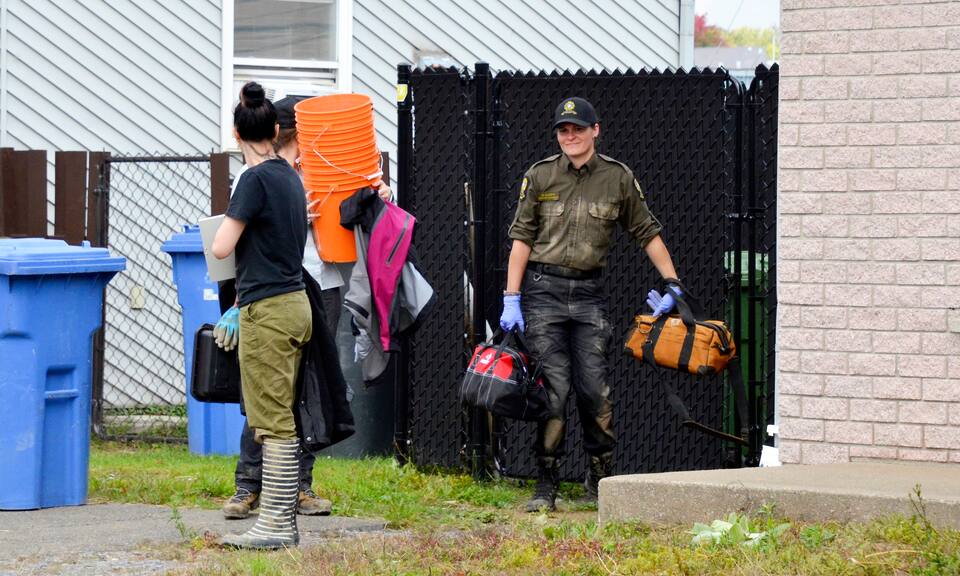Copyright thestar

Inside the Montreal convention centre where Artificial Intelligence Minister Evan Solomon was set to speak, inspirational music evoking a promising, more hopeful future suffused the room. An audience bathed in a technologically blue glow sat before a stage as beams of soft, orange light dramatically swivelled across the ceiling. Outside the room, those who attended one of Canada’s largest AI conferences this week flocked to rows of booths featuring startups, tech companies and governments of all levels. Entrepreneurs, angel investors, public servants and a staffer from Conservative Leader Pierre Poilievre’s office roamed the floor. A robotic arm dipped a brush into acrylic paint to depict an abstract scene. A baby stroller rocked and roved unassisted. A four-legged robot named Spot was shoved by an engineer, demonstrating how it could right itself before hitting the ground. This is the kind of place where AI is touted as a solution to almost anything. It’s the sort of place where you start to believe it. “AI is kind of our brand. It’s kind of our thing. Like, I know we don’t like to trumpet things, but modern-day AI took shape in this country,” Solomon said in his opening address at the ALL IN summit on Wednesday. And for Solomon, the place where Canada must focus next is … Canada. “For our government, for our country, ‘all in’ means building digital sovereignty,” Solomon said. “Building digital sovereignty — the most pressing policy (and) democratic issue of our time.” It’s not surprising that digital sovereignty — giving a country complete control over its data, systems, workforce and infrastructure — has been catapulted to the top of Solomon’s to-do list. It’s the perfect intersection of Prime Minister Mark Carney’s pledge to transform Canada at a time when geopolitical ties are unravelling, and his enthusiasm for scaling up AI and integrating it into untold facets of Canadians’ lives. “Whoever controls (our data), or whoever uses it, whoever governs it, will determine our collective prosperity and our security and sometimes our values,” Solomon told the crowd. If there is a dark side to the protectionist nature of this emerging AI race, it has yet to be fully understood. The Montreal AI Ethics Institute points to some downsides. There could be drains on the planet and its resources. Countries duplicating efforts in their own silos might be a costly undertaking for an approach that could weaken global collaboration and produce redundancies. Sovereignty could inflame mistrust between nations, and make it harder to impose ethical guidelines across borders. “Sovereignty does not mean solitude. We will … continue to trade with other nations internationally, especially the United States and trusted allies,” Solomon said Friday at the Empire Club of Canada in Toronto, where he sat down with Star editor-in-chief Nicole MacIntyre and revealed the membership of a 26-person task force that now has 30 days to shape a revamped national AI strategy. Sovereignty, one of the focuses of that task force, proved to be a dominant theme during this week’s conference. It was there that Montreal’s deep learning research institute Mila, digital infrastructure company 5C, and IT solutions provider Hypertec unveiled a new centre for sovereign AI research. Telus, meanwhile, announced it had opened Canada’s “first fully sovereign AI factory” in Quebec. On the sidelines of the summit, I spoke to Telus chief information officer Hesham Fahmy about what it all means. “The way I’ve tried to describe it is, sovereignty fundamentally is about controlling your own destiny and owning your own destiny … and there are layers of it,” Fahmy said. One layer is scarcity: Canada, Fahmy said, doesn’t have the graphic processing units (GPUs) to run the work it needs. The next layer is ensuring data stays within Canada’s borders. The next is guaranteeing that only Canadians are interacting with Canadian infrastructure. Another is allowing only Canadian companies to control the hardware to protect against foreign influence. The factory Telus announced tackles all those layers, Fahmy said. Hundreds of GPUs will now empower Telus and its clients to run workloads at massive scale, like changing how Telus services its cellular towers. Fahmy said the decision to launch the factory was made in January, and it was operational by the end of this summer. Those are the kinds of timelines you rarely hear about in this country. I asked Fahmy about that, and on how Canada can continue to move quickly on AI adoption. He quoted Solomon’s keynote address, in which the minister said, “Technology moves at the speed of innovation, but adoption moves at the speed of trust.” Trust, the other priority Solomon says he’s seized with as he walks a path no cabinet minister has walked before, is undoubtedly at the root of it all. At the end of the conference, I learned the mechanical arm was reproducing artwork with the consent of the artist, the baby stroller wouldn’t autonomously roll with an infant inside, and the robotic canine was helping workers, not replacing them. It’s now up to the government to educate, legislate and close the public trust gap if it hopes to generate a Canadian AI revolution.



